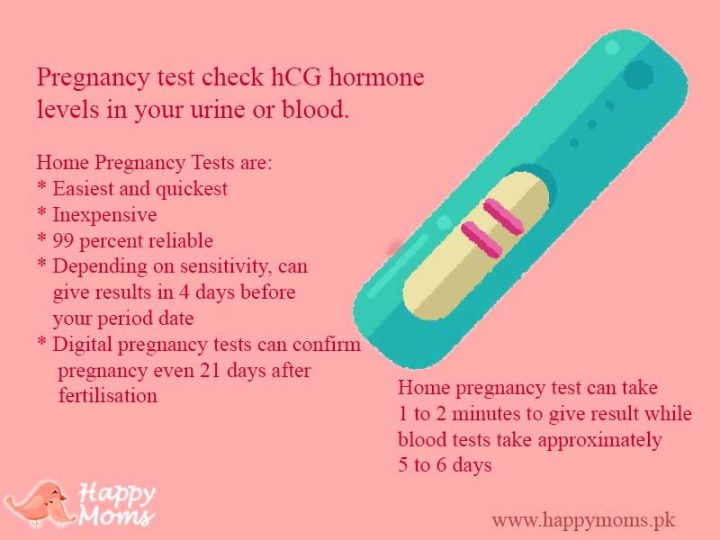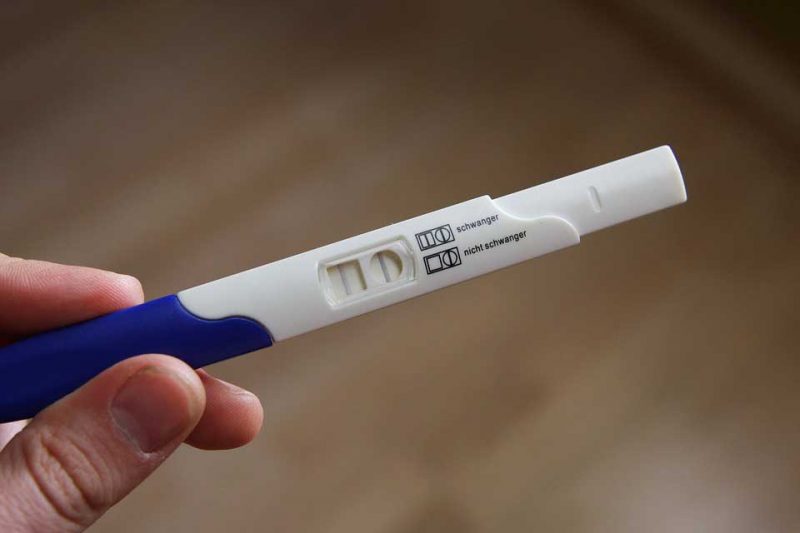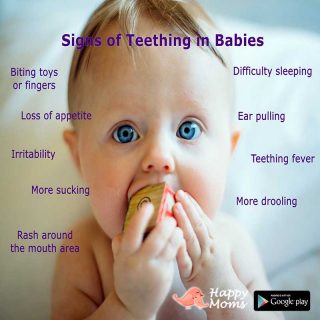
A pregnancy test can confirm whether you are pregnant or not. Pregnancy tests check for a human chorionic gonadotropin (hCG) hormone in your urine or blood.
If you are testing early, there may not be enough hCG in your body to pick up a home pregnancy test before you even missed a period. This is because the hormone levels slowly build up as new life starts.
As soon as the egg and a sperm merge, their genetic material joins to form a new cell. This new cell divides rapidly, and each newly formed cell divides again and again into the embryo. This happens normally 6 days after fertilization. The level of hCG in your bloodstream doubles every 2 to 3 days as the embryo grows and its placenta develops. HCG can only be detected, if you’re pregnant.
Types of pregnancy test
There are two types of pregnancy tests:
Blood tests
These are administered in the clinic or lab but are not used as often as urine tests. Such tests will predict pregnancy around 6 to 8 days after ovulation, before a home pregnancy test. It takes longer than a home pregnancy test to get results. The two types of blood pregnancy tests are:
Qualitative hCG test: It checks for hCG level in blood. Doctors usually prescribe such tests as early as ten days after you conceive, to verify pregnancy. Few of them will check hCG much sooner.
Quantitative hCG test (also called beta hCG): It tests the exact level of hCG in your blood. It can even identify very low hCG levels. These tests can help to monitor pregnancy problems and most doctors use them to exclude the chances of ectopic pregnancy or after a miscarriage.
Urine tests
Home pregnancy tests are simple and easy to use, in addition to being personal and convenient. You can get accurate results if you follow the exact directions. You can gather the urine for a sample in various ways. Depends on the test you choose; you may have to:
Hold the test stick in your urine stream
Collect pee in a cup and dip the test stick into it
Collect pee in a cup and use a dropper to put it into another container.
The tests show you the results in one of the following ways:
- a change in color
- a line
- a sign, such as plus or minus
- the words “pregnant” or “not pregnant”
You should consult the doctor, who can do even more specific pregnancy tests, after taking the home pregnancy test. The majority of the tests are 99 % successful if taken after a missed period. If you don’t see a line or a symbol, the test you have taken is probably not working properly. Try again with another test.
Some home pregnancy tests are sensitive. In other words, the quantity of HCG detected in the urine is lower for certain tests to generate a positive test result. Check the expiry date of the test, always and carefully read the instructions before you take the test.

Accuracy of pregnancy test
Home pregnancy tests are precisely correct if you follow the instruction given in the test kit. Some tests are more sensitive than others and are simple to use and understand. The more sensitive a test is, the better the hCG levels in your body can be detected.
Digital pregnancy tests are more accurate than non-digital tests and can help detect earlier. The sensitivity of the kit will still depend on it. By reading the information in the test case, you can determine how sensitive a pregnancy test is. You will find hCG values in the milli-international units (mIU) per milliliter.
Home pregnancy test with urine are around 99% accurate, blood tests are more accurate. A home test’s accuracy depends on:
- If u have carefully followed the instructions
- The time of ovulation and implantation
- How soon after pregnancy you take the test
- The pregnancy test’s sensitivity
Many home-based pregnancy tests claim 99% accuracy. However, it depends on their sensitivity. You should retake the test after one week of your missed period or speak to your doctor if you have a negative test but think you might be pregnant. Pregnancy tests can depict more precise results when you take them after you missed your period. Consider checking the expiry date and following the instructions carefully
Pregnancy Test Results:
Negative:
Negative result means you are probably not pregnant. But you may be pregnant if:
- The test is past its expiration date.
- You do not follow the instructions carefully.
- You tested too early.
- Urine is too diluted due to lot of fluids intake before the test
- You’re taking certain medications which has an effect on your hCG levels.
False Negative:
You may see a false negative result if you took the test too early or before your first day of periods. The reason is hCG level is not enough to be detected through a home-based test in your body. If you are doubtful about the negative result and still feel that you are pregnant try again after at least three days.
Positive:
Positive result means you are pregnant, you should consult a doctor after home pregnancy test.
False-positive:
When you are not pregnant but your test indicates you are pregnant which rarely happens.
This could be due to some medicines which contain hCG, such as fertility-related. You should check the leaflet that comes with the medicines to confirm it can affect your hCG levels. Also due to blood or protein in your pee, you could have false-positive result
Faint line with non-digital test kits can be difficult to interpret, an ectopic pregnancy, menopause or some problems related to reproductive organs might result in confusing test results.
Mostly results are indicated as a line, a color shade, or a sign such as a “+” or “-” symbol. Digital tests display the words “pregnant” or “not pregnant.” It’s important to know what your result means. A blood test is a good idea to confirm results, if you are confused or your tests are misleading or if you have to take the test twice or thrice.
Purchasing a Pregnancy Test Kit
Pregnancy tests are easily available at pharmacies and supermarkets in Pakistan. You can purchase them without a prescription and they are not very expensive.
Most of the pregnancy test kits available in the market claim to be 99% accurate, but to avoid any disappointments, it is important to consider a good brand along with the sensitivity of the test kit.
Time to Take a Pregnancy Test
It is difficult to wait in such a situation but it’s better to take a test after you have missed your periods.
Testing too early may not give you an accurate result, although some tests claim to be able to detect pregnancy four days before your period is due or 8 to 10 days after conception. At this stage, levels of hCG in your system will still be relatively low. So, you may end up needing to do another test in a few days.
Most tests are sensitive enough to detect hCG in your urine from the first day your period is due. To be sure and get a definite result you must wait 1 to 2 weeks after your period’s due date because this is the time your hCG level will be at the peak.
In case of irregular periods, consider your longest cycle in previous months before testing. If you are on medicine and not sure about your cycle, you can always repeat the test after 3 to 5 days. Alternatively, you can take the test at least 21 days after you had unprotected sex.
Time to get the results:
It could hardly take 1 to 2 minutes to see the result for a home-based pregnancy test. To be sure you must check the instructions that come with the test kit. For a blood test, It could take a few hours to 5 or 6 days approximately, to get the results.
Difference Between Home Test and Laboratory Test:
Most doctors use the same home pregnancy test to check for a positive pregnancy. In case of a medical condition or previous complicated pregnancy, your doctor may recommend a blood test to confirm and advise the treatment accordingly.
Blood tests can confirm pregnancy 6 days after fertilization, which is even before an ultrasound can confirm. This is because a blood test is more sensitive as compared to urine test.
This article is for informational purposes only, and is not meant to offer medical advice.
Read more on Getting Pregnant



